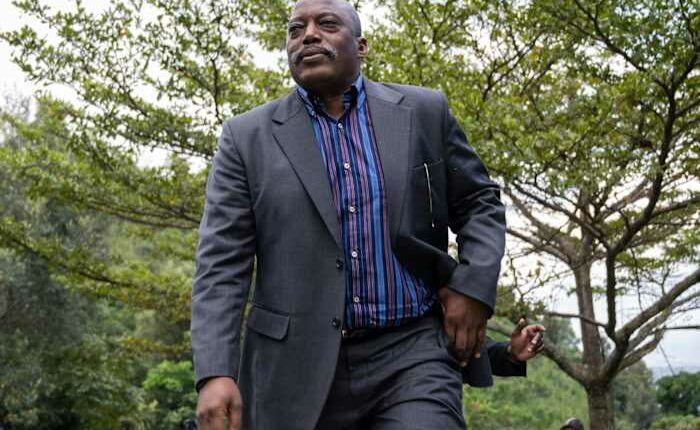Share this @internewscast.com

NAIROBI – Making headlines once again, the former president of the Democratic Republic of Congo emerged in public on Wednesday after being sentenced to death in absentia on charges of treason and war crimes. He was seen in Kenya, where he is attempting to form a political alliance against Congo’s incumbent president.
Joseph Kabila appeared in Nairobi, Kenya’s bustling capital, where he was filmed participating in a ceremony alongside a dozen other Congolese figures who stand in opposition to President Felix Tshisekedi.
This move by Kabila is likely to ignite diplomatic tensions, as Congo’s government has previously accused Kenya of providing support to the Congo rebel faction, M23.
During the gathering, the leaders signed a declaration to establish a new political initiative. This movement aims to rally “all Congolese people opposed to the dictatorship” with the mission to “end tyranny, restore state authority, reestablish democracy, and foster national reconciliation.”
Meanwhile, the government in Kinshasa accuses Kabila of collaborating with Rwanda and backing the Rwanda-supported M23 group, which recently captured significant cities in Congo’s resource-rich eastern region in a rapid offensive.
Kabila’s former political party, the People’s Party for Reconstruction and Democracy, has dismissed the death sentence handed down by the high military court on September 30 as being driven by political motives.
Kabila denies the allegations, but expressed support for the rebels’ campaign in a February opinion article in the South African newspaper Sunday Times.
Kabila came to power at age 29, taking over from his father, former President Laurent Kabila, who was assassinated in 2001 while still in office. When his term ended in 2017, Kabila extended his rule by delaying elections for two years.
Tshisekedi’s 2019 election marked the first peaceful transition of power in Congo since the country gained independence from Belgium in 1960. He entered an initial power-sharing agreement after failing to gain a parliamentary majority over Kabila’s opposition coalition, which still controlled Parliament and key institutions.
The relationship continued to sour until Kabila fled Congo earlier this year.
Copyright 2025 The Associated Press. All rights reserved. This material may not be published, broadcast, rewritten or redistributed without permission.












